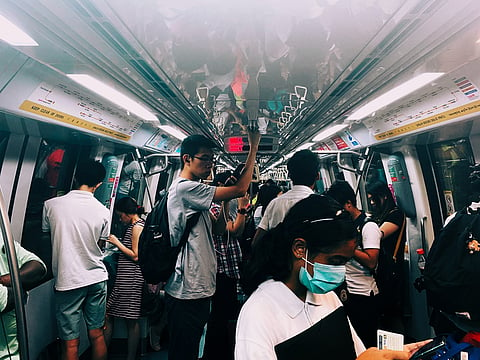
- NEWS
- the EDIT
- COMMENTARY
- BUSINESS
- LIFE
- SHOW
- ACTION
- GLOBAL GOALS
- SNAPS
- DYARYO TIRADA
- MORE

A predominant number of Filipino laborers have not succumbed to burnout, which was the most in terms of maintaining good mental health in the workplace, a study indicated.
The study covered workers in Singapore, the Philippines and Indonesia.
Based on the survey, it was the Singaporean workforce who have the worst mental health across Southeast Asia, with local employees surveyed claiming the lowest levels of engagement, job satisfaction, and overall quality of life.
Conducted by Southeast Asian consumer research company, Milieu Insight, in collaboration with think tank Intellect, the "Hustle Culture" study covered 3,000 employees and discovered only 57 percent of Singaporeans rated their mental health to be "good," "very good" or "excellent."
It was 68 percent in Indonesia and 78 percent in the Philippines.
While numerous factors have contributed to burnout and fatigue among the workforce, including financial and geopolitical uncertainties, Covid-19, a potential global recession on the horizon, the glamorization of productivity, and the "rise and grind" mentality have taken their toll on the region's workforce, especially younger employees, based on the survey results.
According to the study, the top reasons employees push hard in their jobs are the desire to build a better life for themselves and their loved ones (58 percent), achieving a sense of accomplishment (53 percent), and earning more income (50 percent).
Across all three countries, 16-24-year-olds tend to be motivated by the "fear of not being able to do as well as my peers," with 30 percent in Singapore, 20 percent in the Philippines, and 11 percent in Indonesia indicating so.
As a result, 50 percent of employees across the region have reported feeling burnt out from work at least a few times a month, with 41 percent "often" or "always" feeling as though they cannot stop thinking about work.
Insights from the study show that on average, Singapore employees spend less than or as much time at work as their regional counterparts, but report the lowest levels of engagement and job satisfaction.
In Singapore, just 42 percent of talent reported high engagement at work (having indicated a score of eight or higher on a scale of 1 to 10), compared to 52 percent of Indonesian employees and 56 percent of Filipino employees.
17% dissatisfied with work
At the same time, 26 percent of Singaporeans employees are dissatisfied with their job, compared to 15 percent in Indonesia and 17 percent in the Philippines.
Even more worrying, half (52 percent) of Singapore employees report having poor quality of life, compared to 37 percent and 36 percent in Indonesia and the Philippines respectively. This also translates into poor sleep, with 30 percent of Singaporeans admitting to poor sleep quality (having indicated a score of 4 or below on a scale of 0 to 10), compared to 19 percent of Indonesian employees and 16 percent of Filipino employees.
"The report is the first step to gain a deeper understanding of hustle culture and its impact on our local and regional communities. We aim to tackle ongoing challenges with workplace fatigue, burnout, and employee mental health," Theodoric Chew, Co-founder and CEO of Intellect, said.
While companies may be hesitant to invest in more robust wellbeing initiatives such as coaching or counseling, it is a necessary step in building workforce mental resilience, in line with the Singapore government's goal to improve employment support for those with mental health conditions."
"Interestingly, we ran a similar study in 2020 among 2,000+ Singaporeans, where we found that 52 percent of 16 to 24 year-olds actually embraced the idea of hustle culture, and working as hard as possible to advance one's career," Stephen Tracy, COO of Milieu Insight, said.
"The data highlights just how important it is for employees to be mindful of their work-life balance, and for employers to cultivate positive and balanced working environments."
